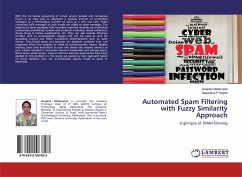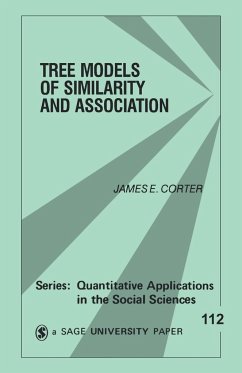
Automated Spam Filtering with Fuzzy Similarity Approach
A glimpse of SPAM filtering
Versandkostenfrei!
Versandfertig in 6-10 Tagen
27,99 €
inkl. MwSt.

PAYBACK Punkte
14 °P sammeln!
With the increasing popularity of e-mail, several people and companies found it an easy way to distribute a massive amount of unsolicited messages to a tremendous number of users at a very low cost. These unwanted bulk messages or junk emails are called as spam messages. The majority of spam messages that has been reported recently are unsolicited commercials promoting services and products including sexual enhancers, cheap drugs & herbal supplements, etc. They can also include offensive content such as pornographic images and can be used as well for spreading rumors and other fraudulent adver...
With the increasing popularity of e-mail, several people and companies found it an easy way to distribute a massive amount of unsolicited messages to a tremendous number of users at a very low cost. These unwanted bulk messages or junk emails are called as spam messages. The majority of spam messages that has been reported recently are unsolicited commercials promoting services and products including sexual enhancers, cheap drugs & herbal supplements, etc. They can also include offensive content such as pornographic images and can be used as well for spreading rumors and other fraudulent advertisements such as make money fast. E-mail spam has become an epidemic problem that can negatively affect the usability of email as communication means. Besides wasting users time and effort to scan and delete the massive amount of junk e-mails received; it consumes network bandwidth and storage space, slows down email servers. Several machine learning approaches have been applied to this problem. In this study, we explore a new approach based on fuzzy similarity that can automatically classify e-mail as spam or legitimate.












